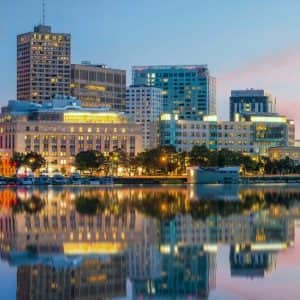Massachusetts Energy Efficiency - Terms and Legislation
Published on December 13, 2019 by Norman Osbourne

The commonwealth of Massachusetts has led the nation over the last decade on energy efficiency. Part of this legacy is due to signing into law the Massachusetts Global Warming Solution Acts (GWSA) in August of 2008. The law requires a Green House Gas (GHG) reduction to happen below 1990 levels with a goal of 80% reduction by 2050. Part of this legislation involved the net-zero stretch code, which was established within the building code appendix over a decade ago and since has been adopted by the majority of Massachusetts municipalities. Yet a decade later, the terms involved with these policies, such as net-zero, are often misused.
The following is a quick review of the definition of some terms in association with energy efficiency concerning Massachusetts and current legislation under consideration by various committees in the State House:
Climate Zone — a geographical region based on climatic criteria specified in the energy code.
Daylight Zone — also called the daylight area, is the floor area substantially illuminated by daylight. In other words, it is an area that consistently receives significant quantities of sunlight during the day.
Energy Consumption — is the amount of energy or power used.
Energy Cost — is the total expense for generating, distributing, and using energy. It includes both monetary and non-monetary values.
Greenhouse Gas (GHG) — refers to any gas that traps heat in the atmosphere through the greenhouse effect. Some GHG emissions are the result of both natural occurrences and the result of human activities emitted through human actions. These gases are also known as anthropogenic gases, and they are the main focus of GHG reduction efforts.
Historic Building — any building or structure that is one or more of the following:
1. Listed or certified as eligible for listing by the Historic Preservation Officer or the Keeper of the National Register of Historic Places making it subject for review by the National Environmental Policy Act (NEPA) and Section 106 of the National Historic Preservation Act (NHPA) regulations (36 CFR 800).
2. Designated as historic under an applicable state or local law.
3. Certified as a contributing resource within a National Register-listed, state-designated or locally designated historic district.
Net-Zero — is resulting in neither a surplus nor deficit of something specified when adding gains and losses together.
Net-Zero Building — also known as Net-Zero Energy Building (NZEB), Zero-Energy Building (ZE), Zero Net Energy (ZNE) building— these are buildings with zero net energy consumption. This means the total amount of energy used by the building on an annual basis is equal to the amount of renewable energy created on the site or in other definitions by renewable energy sources offsite.
Net-Zero Stretch Code — is a locally enforced alternative compliance code that is more restrictive than the base code, resulting in buildings that, in theory, and often when applied, achieve higher energy savings.
On-Site Renewable Energy — is energy derived from solar radiation, wind, waves, tides, landfill gas, biomass, or the internal heat of the earth. The on-site renewable energy needs to be on the project site.
Proposed Design — a description of the proposed building used to estimate annual energy. Used for determining compliance based on total building performance.
Renewable Energy — is energy collected from renewable resources, which naturally replenished on a human timescale, such as sunlight, rain, wind, geothermal heat, waves and tides.
Standard Reference Design — a version of the proposed design that meets the minimum requirements of the energy code. Used to determine the maximum annual energy use requirement for compliance based on total building performance.
Zone — maintained throughout using a single controlling device, is a space or group of spaces within a building with heating and cooling requirements that are sufficiently similar to desired conditions.
Bill H.3983 An Act To Create A 2050 Roadmap To A Clean and Thriving Commonwealth
Bill H.2874 An Act relative to increasing net-zero homes in Gateway Cities
Bill S.1935 An Act establishing a net-zero stretch energy code
Bill S.1829 An Act relative to net-zero housing
Bill S.1942 An Act establishing a study of energy efficient options for low-income households
Bill H.2820 An Act relative to energy efficiency education
Bill S.1987 An Act to expand the green communities program to mitigate climate change
